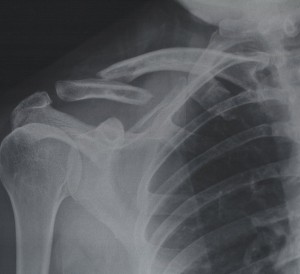
Photo courtesy of https://www.flickr.com/photos/naudinsylvain/
I recent taught a 12 hour CE class on gut to bone to gut on the links between the GI tract, bone and the risk of diabetes.
The links between these body systems are so far outside the realm of how we “treat” in medicine today as to make medicine appear as up to date as bloodletting and performing surgery with a blood-stained lab coat.
Somewhere along the line the powers that be that control medicine decided that splitting the practice of medicine into specialties was a good idea. Unfortunately, the body has never respected these boundaries. As a result, the chronic diseases we see so often today quite frankly can’t be fully managed by the specialists assigned to treat them.
The endocrinologist does not and could not fully address the cardiology and neurological complaints of a diabetic patient. The cardiologist does not and could not address the colon cancer developing in a high number of his or her heart disease patients.
This interconnected relationship exists in all systems for all diseases. This particular study does a great job of illustrating this. In it, researchers looked at the relationship between HBA1c (a marker of diabetes) and C-telopeptide (CTX-a marker of bone turnover—higher levels indicate that bone is breaking down faster).
Here’s the important factor: all the women in this study had normal glucose tolerance, meaning that they were not diagnosed as being diabetic or prediabetic.
Despite the fact that these women were not labeled as prediabetic, those with the highest levels of HBA1c also had the highest levels of bone turnover as measured by CTX. In other words, even if you have not (yet) been diagnosed with prediabetes, as you become more and more prediabetic (and ultimately diabetic) you will start losing more and more bone.
How can this happen? It has to do with the hormone osteocalcin. Osteocalcin is a hormone released from healthy osteoblasts (the cells in bone that helps us build new bone) that helps actually acts on abdominal fat cells to help them fight off diabetes.
While this study finds an association between HBA1c and bone, it does not really give an indication of what direction the association lies. Is prediabetes bad for the bones or does poor bone health increase your risk of diabetes?
While the fact that poor bone health will increase your risk of developing diabetes (through the hormone noted above, osteocalcin), it would not surprise me to find that diabetes is also bad for the bones (not to be confused with “bad to the bone,” which would relate to something else entirely).
The bottom line is that healthy lifestyle changes geared to help with avoiding diabetes are also going to improve bone health and dietary changes to help build more bone are also going to be anti-diabetic as well.
